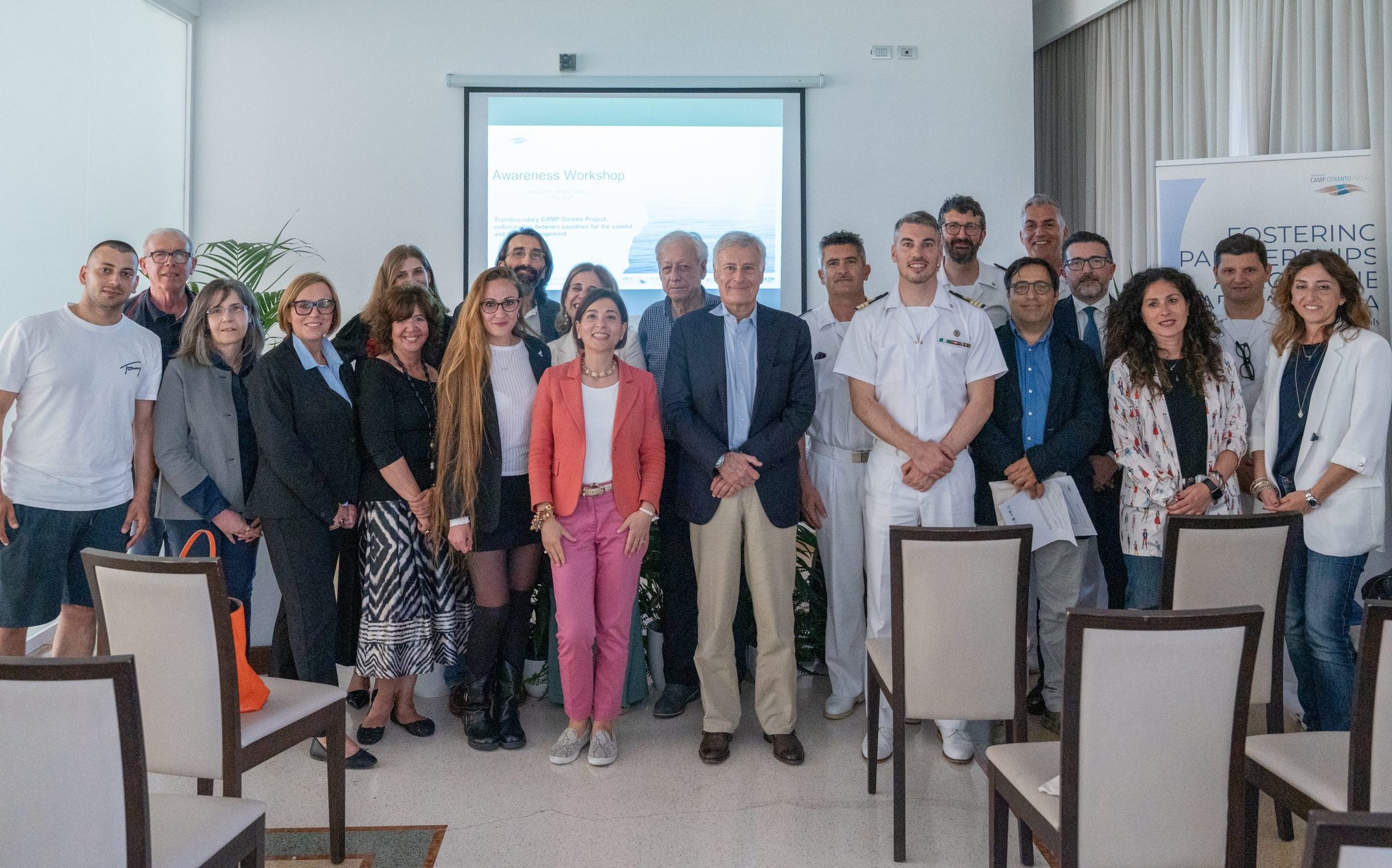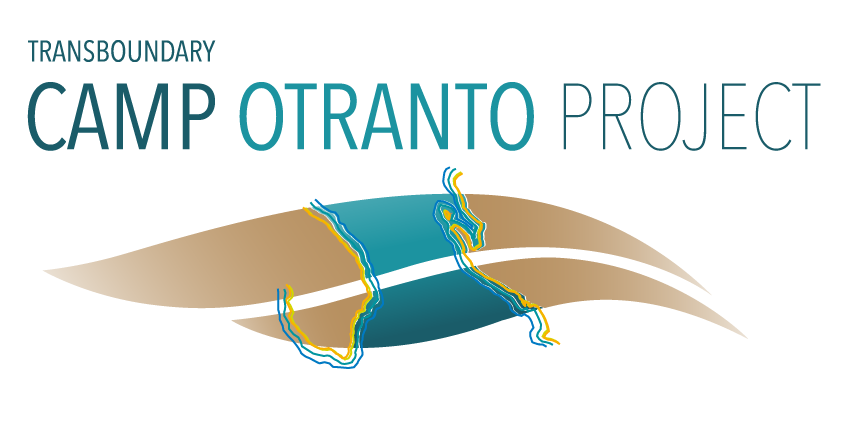15 June 2023
Sustainable Fishing and Innovative Management of Marine Litter

Transboundary CAMP Otranto Project stakeholders met in Otranto on 31 May 2023 to attend the awareness workshop on collaborative coastal management and training on marine litter management.
These events support the project’s mission to reinforce sustainable development, integrate ICZM and MSP in the South Adriatic, eliminate marine litter, prevent pollution, and strengthen biodiversity conservation in the project regions of Vlora (Albania) and Puglia (Italy).
Councillor for the Environment of the Puglia Region, Anna Grazia Maraschio referred to the CAMP Otranto project as an opportunity to deepen economic, environmental and cultural aspects, with the aim of seeing marine-coastal resources not damaged but protected and enhanced, thanks to the integrated action.
Every year around 230,000 tonnes of plastic waste end up in the Mediterranean Sea alone. When it breaks down into microscopic particles (microplastics), it is ingested by fish and enters the food chain. Speaker at the event Roberto Carlucci an Associate Professor in the Ecology Department of Bioscience Biotechnologies and Environment of the University of Bari emphasised that the first step to remedy a problem is to know about it, to understand that marine litter is linked to human activities. Speakers throughout the day covered topics on waste management, good practices and potential risks of litter collection, protocols for assessment, and the identification of the type of plastic present in marine litter.
Sustainable fishing is one area of interest where cooperation from fishers in collecting marine litter could be extended to other coastal areas. Ongoing support requires scientific assessment by universities and research centres, as well as an institutional response to issues such as collection points, dedicated infrastructures, waste management by category, and monitoring and control actions by the Coast Guard.
Marine Litter is an important issue, stated the General Director Oliviero Montanaro from the Ministry of Environment and Energy Security of Italy (IMEES). He said: “…we can increase the efficiency and sustainability of activities in the Mediterranean area alongside assessing and supporting relevant ICZM initiatives at a local level, with particular reference to the waste management chain.”
By selecting local activities for testing ICZM SAS, stakeholders can work with local fishers to adopt sustainable fishing and implement new practices for collecting marine litter. This work will support evaluating fishing for litter locally and is closely linked to the Individual Action ICZM SAS to measure efficiency and sustainability in the Mediterranean. Elisa Ulazzi, one of the CAMP Otranto Project experts, presented how ICZM SAS will evaluate and support relevant initiatives related to ICZM at the local level by providing best practices on where to test sustainable fishing techniques, the reduction of emissions from pollutants at sea, the use of green fuels and use of solar electrical equipment.
The Maritime Director of Puglia and Ionian Basilicata, Rear Admiral Vincenzo Leone summarised the special area the project represents. He pointed out: “The Adriatic is the sea within the sea, with a very special history and characteristics. What there is in the Mediterranean is unique for human civilisation and very important for looking to the future with a view to ecological transition. We are here to offer moments of study, confrontation and collaboration.”
To find out more please contact Daniela Addis, National Project Coordinator by emailing daniela.addis@camp-otranto.com.
You can follow all the news using the hashtag #CAMPOtranto.
